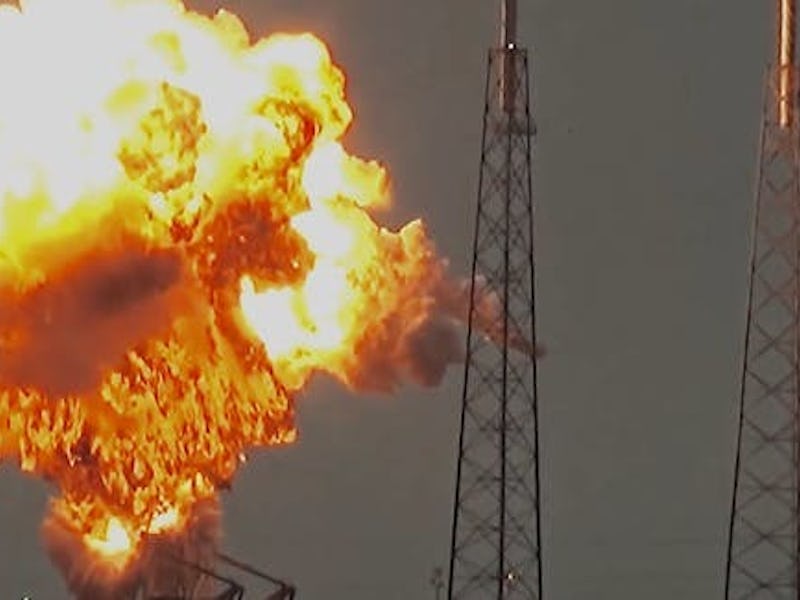Exactly one year ago, on September 1, 2016, SpaceX watched one of its flagship Falcon 9 rockets torch up on the SLC-40 launch site at Kennedy Space Center in Florida. The so-called “anomaly” — an explosion which caused irreparable damage to the rocket, as well as outright destroying a very-expense AMOS-6 communications satellite important to Israeli company Spacecom and Facebook — was the most serious setback the company had ever experienced at that point.
One year later, the company boasts a perfect mission record for the entire 2017 year so far, including nine successful Falcon 9 booster landings, with zero accidents or failures of any kind. That’s quite the turnaround for a company marred by concerns it was attempting to move too fast, too brashly, without enough attention to safety and engineering details.
Here’s the deal: the September 1, 2016 explosion alone, caused by a fueling error, destroyed a $200 million commercial satellite, which Facebook had big plans to use as part of its Internet.org plan to beam broadband internet access to rural parts of Sub-Saharan Africa. Facebook CEO Mark Zuckerberg was, to put it lightly, pretty disappointed.
The explosion also set back company’s launch schedule for the rest of the year. That’s four months worth of launches which, for a a while, had no defined rescheduled date. SpaceX began losing customers, even after it was able to announce a January target for return to flight.
The financial losses aren’t specific, but one thing is very clear — SpaceX fell short of its hopes to bring in $1.8 billion in revenue for 2016. If the company could not get itself back on track into the following year, those losses would surely would eat into 2017 and potentially beyond.
There was also the whole process of trying to figure out exactly what happened. The investigation into the explosion — which CEO Elon Musk as called “the most difficult and complex failure we have ever had in 14 years” — had to be thorough and exhaustive, in order to ensure such an accident wouldn’t happen again.
By January, the company was confident enough to start launching rockets again. It’s return to flight was a celebrated event, but SpaceX’s ambitions for 2017 were much bigger than just getting back to business as usual. The company unveiled an incredibly audacious launch schedule which would [hit its peak in the middle of the summer](https://www.inverse.com/article/31325-spacex-summer-launch-schedule-eight-missions-four-months. The company wants to see itself in a position to launch every two to three weeks, and the summer would be the first test of such plans.
The year is not even over, but 2017 is already a banner year. Not only has the company bounced back from its worst failure ever in just a single year, but it’s already accomplishing more than ever before. Its last successful mission means the company has executed 12 missions in a row — including going nine for nine on rocket landings. Two of the those missions launched previously-flown Falcon 9 boosters, and one used a previously flown Dragon spacecraft.
SpaceX is going to need the newfound swell in confidence for the rest of the year. November is going to be a very nerve-wracking month. The company will attempt the first-ever launch of the Falcon Heavy rocket — a bigger, badder version of the Falcon 9 which will be aimed at launching bigger payloads into space and sending more spacecraft — and people! — into reaches of space beyond Earth’s orbit.
And it’s probably going to fail. Musk has gone on record to say he’s not at all optimistic about the Falcon Heavy’s chances of pulling off a successful flight. “Real good chance that that vehicle does not make it to orbit,” he said in July.
For a company that averages one major failure every year, at least a failed Falcon Heavy flight would be an expected failure. At this point, SpaceX is in control of its own destiny. After rebounding from a pretty awful explosion one year ago, it’s pretty clear a less-than-perfect Falcon Heavy will not stop SpaceX from moving forward.
